John O’Connor
@johnoconnor10.bsky.social
Postdoctoral researcher at Maynooth University | creation, sharing and use of evidence in public policy. @maynoothuniversity.ie
@mu-ssi.bsky.social https://orcid.org/0000-0001-9027-8214 🇮🇪
@mu-ssi.bsky.social https://orcid.org/0000-0001-9027-8214 🇮🇪
Reposted by John O’Connor
What influences the use of research #evidence in policy? An updated systematic map.
📊 Access the pre-print, a full set of data & series of visualisations.
✍🏼 @oliver-kathryn.bsky.social
transforming-evidence.org/projects/wha...
📊 Access the pre-print, a full set of data & series of visualisations.
✍🏼 @oliver-kathryn.bsky.social
transforming-evidence.org/projects/wha...
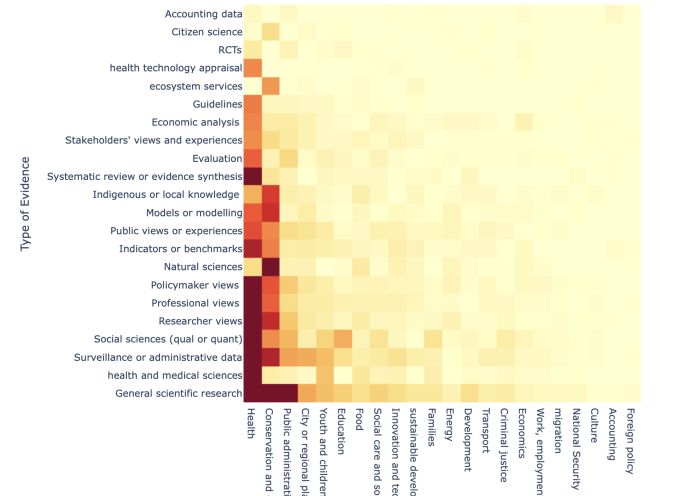
April 11, 2025 at 9:47 AM
What influences the use of research #evidence in policy? An updated systematic map.
📊 Access the pre-print, a full set of data & series of visualisations.
✍🏼 @oliver-kathryn.bsky.social
transforming-evidence.org/projects/wha...
📊 Access the pre-print, a full set of data & series of visualisations.
✍🏼 @oliver-kathryn.bsky.social
transforming-evidence.org/projects/wha...
Reposted by John O’Connor
What are the aims, roles + intended impacts of knowledge brokering?
@chriscvitanovic.bsky.social & @paulcairney.bsky.social share new research exploring this "invisible work"
🔗 transforming-evidence.org/blog/the-inv...
@chriscvitanovic.bsky.social & @paulcairney.bsky.social share new research exploring this "invisible work"
🔗 transforming-evidence.org/blog/the-inv...
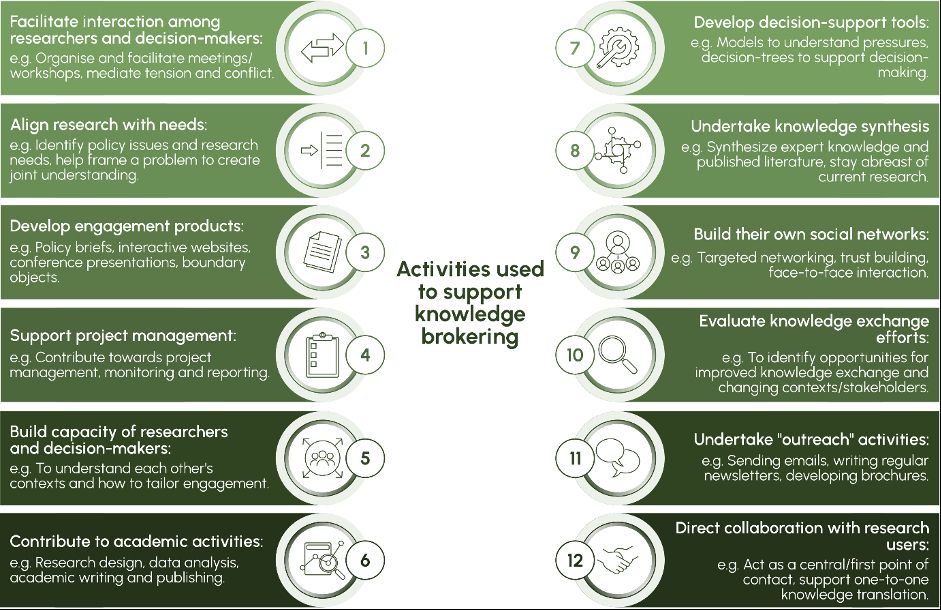
March 7, 2025 at 10:40 AM
What are the aims, roles + intended impacts of knowledge brokering?
@chriscvitanovic.bsky.social & @paulcairney.bsky.social share new research exploring this "invisible work"
🔗 transforming-evidence.org/blog/the-inv...
@chriscvitanovic.bsky.social & @paulcairney.bsky.social share new research exploring this "invisible work"
🔗 transforming-evidence.org/blog/the-inv...
Reposted by John O’Connor
📙 New: Knowledge translation research priorities
- Build funder consensus
- Identify gaps to guide investment
- Support and share evidence syntheses
- Triage cross-disciplinary evidence priorities
Working paper with @who.int @oliver-kathryn.bsky.social
transforming-evidence.org/resources/kn...
- Build funder consensus
- Identify gaps to guide investment
- Support and share evidence syntheses
- Triage cross-disciplinary evidence priorities
Working paper with @who.int @oliver-kathryn.bsky.social
transforming-evidence.org/resources/kn...

Knowledge translation research priorities: an evidence synthesis
Transforming Evidence
transforming-evidence.org
February 18, 2025 at 11:40 AM
📙 New: Knowledge translation research priorities
- Build funder consensus
- Identify gaps to guide investment
- Support and share evidence syntheses
- Triage cross-disciplinary evidence priorities
Working paper with @who.int @oliver-kathryn.bsky.social
transforming-evidence.org/resources/kn...
- Build funder consensus
- Identify gaps to guide investment
- Support and share evidence syntheses
- Triage cross-disciplinary evidence priorities
Working paper with @who.int @oliver-kathryn.bsky.social
transforming-evidence.org/resources/kn...
Reposted by John O’Connor
🔊 Published today, our new Cochrane review on the impact of calorie labelling on people’s selection and consumption of food (including non-alcoholic drinks) and alcohol:
www.cochranelibrary.com/cdsr/doi/10....
Short thread below 👇
www.cochranelibrary.com/cdsr/doi/10....
Short thread below 👇

Calorie (energy) labelling for changing selection and consumption of food or alcohol - Clarke, N - 2025 | Cochrane Library
Select your preferred language for Cochrane reviews and other content. Sections without translation will be in English.
www.cochranelibrary.com
January 17, 2025 at 1:03 AM
🔊 Published today, our new Cochrane review on the impact of calorie labelling on people’s selection and consumption of food (including non-alcoholic drinks) and alcohol:
www.cochranelibrary.com/cdsr/doi/10....
Short thread below 👇
www.cochranelibrary.com/cdsr/doi/10....
Short thread below 👇
Reposted by John O’Connor
In a study of 100 policies & 250 policymakers, we find that a) there's no such thing as the "best" type of evidence, and b) the scale of evidence used in decisions can be a strong predictor of policy effectiveness.
Freely available to all @policysciences.bsky.social
Freely available to all @policysciences.bsky.social

Assessing evidence based on scale can be a useful predictor of policy outcomes - Policy Sciences
With growing interest in more formalized applications of scientific evidence to policy, there are concerns about what evidence is selected and applied, and for what purpose. We present an initial argu...
link.springer.com
February 9, 2025 at 4:07 PM
In a study of 100 policies & 250 policymakers, we find that a) there's no such thing as the "best" type of evidence, and b) the scale of evidence used in decisions can be a strong predictor of policy effectiveness.
Freely available to all @policysciences.bsky.social
Freely available to all @policysciences.bsky.social
This international survey “challenges the idea that there is a widespread lack of public trust in scientists. In most countries, scientists and scientific methods are trusted”. Ireland 🇮🇪#2 in Europe 👏https://www.nature.com/articles/s41562-024-02090-5

Trust in scientists and their role in society across 68 countries - Nature Human Behaviour
What is the state of trust in scientists around the world? To answer this question, the authors surveyed 71,922 respondents in 68 countries and found that trust in scientists is moderately high.
www.nature.com
January 29, 2025 at 5:44 PM
This international survey “challenges the idea that there is a widespread lack of public trust in scientists. In most countries, scientists and scientific methods are trusted”. Ireland 🇮🇪#2 in Europe 👏https://www.nature.com/articles/s41562-024-02090-5
Reposted by John O’Connor
Why should everyone at #MuscatISC be curious about INGSA? Because weall now work across evidence/policy/society. And INGSA is the global network for science-policy-society interfaces, including capacity building, knowledge sharing and regional networking.
It's free to join!! buff.ly/3RBig3s
It's free to join!! buff.ly/3RBig3s

January 29, 2025 at 6:11 AM
Why should everyone at #MuscatISC be curious about INGSA? Because weall now work across evidence/policy/society. And INGSA is the global network for science-policy-society interfaces, including capacity building, knowledge sharing and regional networking.
It's free to join!! buff.ly/3RBig3s
It's free to join!! buff.ly/3RBig3s
Enablers of knowledge echange between science and policy i2insights.org/2025/01/14/e...

The enablers of effective knowledge exchange between science and policy
By Vivian Nguyen and Chris Cvitanovic. What are the practical enabling conditions necessary for effectively implementing strategies to enhance knowledge exchange at the science-policy interface? To…
i2insights.org
January 18, 2025 at 7:13 PM
Enablers of knowledge echange between science and policy i2insights.org/2025/01/14/e...
Reposted by John O’Connor
How can science better inform biodiversity policy? This paper analyzes the evolving role of biodiversity science-policy interfaces, arguing for a shift from information provision to active facilitation of transformative change.

Transformative science–policy interfacing: the case of biodiversity and ecosystem services - Sustainability Science
Science–policy interfaces (SPI), such as IPCC and IPBES, are key mechanisms by which scientists can contribute to policy making to tackle socio-environmental problems. To capture recent and ongoing…
link.springer.com
January 10, 2025 at 1:01 PM
How can science better inform biodiversity policy? This paper analyzes the evolving role of biodiversity science-policy interfaces, arguing for a shift from information provision to active facilitation of transformative change.
Reposted by John O’Connor
Interesting read if you are a manager or scientist working in the science-policy interface.
👇👇
👇👇
Just published - led by @chriscvitanovic.bsky.social we conducted a systematic lit review to identify the top barriers and enablers for knowledge brokers at the interface of environmental science and policy
(..and all the ‘invisible’ work they do) 🔍
doi.org/10.1016/j.en...
(..and all the ‘invisible’ work they do) 🔍
doi.org/10.1016/j.en...

January 4, 2025 at 2:01 PM
Interesting read if you are a manager or scientist working in the science-policy interface.
👇👇
👇👇
Can science for policy learn anything from science for sport?
www.rte.ie/sport/united...
www.rte.ie/sport/united...

Irish rugby following the data to protect big stars
Neil Treacy speaks to Stephen Smith of Kitman Labs about how one of the world's leading sports science companies grew from Michael Cheika's Leinster team in the late 2000s.
www.rte.ie
January 4, 2025 at 7:04 PM
Can science for policy learn anything from science for sport?
www.rte.ie/sport/united...
www.rte.ie/sport/united...
Interesting report that ‘assess the needs and options for strengthening the sciencepolicy interface for improved food systems governance’.
op.europa.eu/en/publicati...
op.europa.eu/en/publicati...

Everyone at the table - Publications Office of the EU
The European Commission (EC) established a High-Level Expert Group (HLEG) to assess the needs and options for strengthening the sciencepolicy interface (SPI) for improved food systems governance. The ...
op.europa.eu
January 4, 2025 at 7:37 AM
Interesting report that ‘assess the needs and options for strengthening the sciencepolicy interface for improved food systems governance’.
op.europa.eu/en/publicati...
op.europa.eu/en/publicati...
Reposted by John O’Connor
🚨 OUT NOW 🚨
📚 The @ipbes.bsky.social #NexusAssessment Summary for Policymakers is now available!
➡️ Explore the most comprehensive assessment ever of the interconnections between biodiversity, water, food, health & climate.
🌏 Options for a just & sustainable future!
www.ipbes.net/node/85582
📚 The @ipbes.bsky.social #NexusAssessment Summary for Policymakers is now available!
➡️ Explore the most comprehensive assessment ever of the interconnections between biodiversity, water, food, health & climate.
🌏 Options for a just & sustainable future!
www.ipbes.net/node/85582
December 17, 2024 at 8:08 PM
🚨 OUT NOW 🚨
📚 The @ipbes.bsky.social #NexusAssessment Summary for Policymakers is now available!
➡️ Explore the most comprehensive assessment ever of the interconnections between biodiversity, water, food, health & climate.
🌏 Options for a just & sustainable future!
www.ipbes.net/node/85582
📚 The @ipbes.bsky.social #NexusAssessment Summary for Policymakers is now available!
➡️ Explore the most comprehensive assessment ever of the interconnections between biodiversity, water, food, health & climate.
🌏 Options for a just & sustainable future!
www.ipbes.net/node/85582
Reposted by John O’Connor
We can’t look at climate change, biodiversity loss, and human wellbeing in separate silos anymore.
Next — we need to look for effective, evidence-based solutions at the intersection of climate, nature, and people.
www.bbc.com/news/article...
Next — we need to look for effective, evidence-based solutions at the intersection of climate, nature, and people.
www.bbc.com/news/article...

IPBES report sees climate, nature and food challenges interlinked
A new approach is needed to tackle the interlinked crises afflicting the planet, scientists warn.
www.bbc.com
December 17, 2024 at 9:25 PM
We can’t look at climate change, biodiversity loss, and human wellbeing in separate silos anymore.
Next — we need to look for effective, evidence-based solutions at the intersection of climate, nature, and people.
www.bbc.com/news/article...
Next — we need to look for effective, evidence-based solutions at the intersection of climate, nature, and people.
www.bbc.com/news/article...
Reposted by John O’Connor
🌍 Why Don’t Governments Use Science?
A @natureportfolio.bsky.social survey found 80% of science-policy experts think governments lack robust systems for science advice - despite crises like COVID-19 showing its value.
How can we bridge the gap?
🔗 www.nature.com/articles/d41...
#SciComm 🧪

Science could solve some of the world’s biggest problems. Why aren’t governments using it?
A Nature global survey finds that most specialists are unhappy with systems to provide science advice to policymakers.
www.nature.com
December 7, 2024 at 7:21 PM
🌍 Why Don’t Governments Use Science?
A @natureportfolio.bsky.social survey found 80% of science-policy experts think governments lack robust systems for science advice - despite crises like COVID-19 showing its value.
How can we bridge the gap?
🔗 www.nature.com/articles/d41...
#SciComm 🧪
Reposted by John O’Connor
Given that politicians seem to care less and less about science, this is just gonna get worse...👇
Why aren’t governments using science? www.nature.com/articles/d41...
80% of scientists say science-advice system broken.
80% say "policymakers lack sufficient understanding of science."
Why aren’t governments using science? www.nature.com/articles/d41...
80% of scientists say science-advice system broken.
80% say "policymakers lack sufficient understanding of science."

December 9, 2024 at 4:00 PM
Given that politicians seem to care less and less about science, this is just gonna get worse...👇
Why aren’t governments using science? www.nature.com/articles/d41...
80% of scientists say science-advice system broken.
80% say "policymakers lack sufficient understanding of science."
Why aren’t governments using science? www.nature.com/articles/d41...
80% of scientists say science-advice system broken.
80% say "policymakers lack sufficient understanding of science."
Reposted by John O’Connor
A growing problem --- fake papers polluting systematic reviews. And interesting point that the gold-standard protocols that Cochrane is developing to weed out untrustworthy studies, are too much of an effort for systematic-review authors looking at 100s of papers. www.science.org/content/arti...
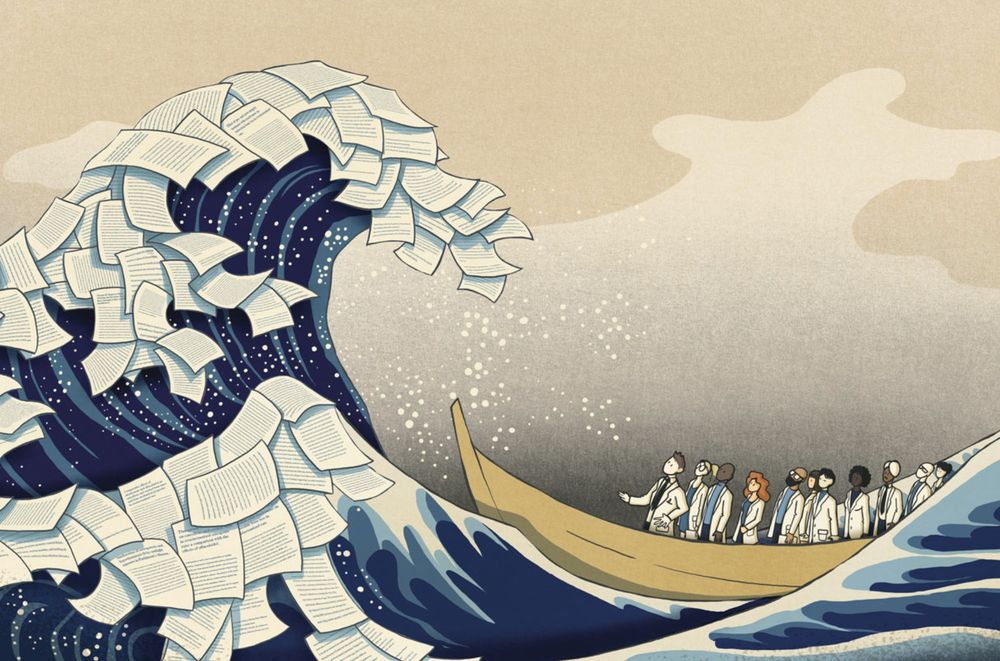
‘Systematic reviews’ that aim to extract broad conclusions from many studies are in peril
Fake papers are “poisoning the well” for these gold-standard syntheses, researchers say
www.science.org
November 29, 2024 at 11:15 AM
A growing problem --- fake papers polluting systematic reviews. And interesting point that the gold-standard protocols that Cochrane is developing to weed out untrustworthy studies, are too much of an effort for systematic-review authors looking at 100s of papers. www.science.org/content/arti...
Reposted by John O’Connor
How does science advice to governments need to change over the next 10 years?
In a Nature survey, respondents said that training scientists in politics & policy is top of the list.
Our editorial outlines what's required
www.nature.com/articles/d41...
In a Nature survey, respondents said that training scientists in politics & policy is top of the list.
Our editorial outlines what's required
www.nature.com/articles/d41...

Advising governments about science is essential but difficult. So train people to do it
A great scientist doesn’t necessarily make an effective science adviser — but schooling and practice can help to bridge the gap.
www.nature.com
December 5, 2024 at 2:59 PM
How does science advice to governments need to change over the next 10 years?
In a Nature survey, respondents said that training scientists in politics & policy is top of the list.
Our editorial outlines what's required
www.nature.com/articles/d41...
In a Nature survey, respondents said that training scientists in politics & policy is top of the list.
Our editorial outlines what's required
www.nature.com/articles/d41...
Reposted by John O’Connor
In a Nature survey, 80% of science-policy experts say their country’s science advice system is poor or patchy.
I've written about the state of global science advice & what should change.
www.nature.com/articles/d41...
Thnx to @ingsa.bsky.social @transformevidence.bsky.social @jperkel.bsky.social
I've written about the state of global science advice & what should change.
www.nature.com/articles/d41...
Thnx to @ingsa.bsky.social @transformevidence.bsky.social @jperkel.bsky.social
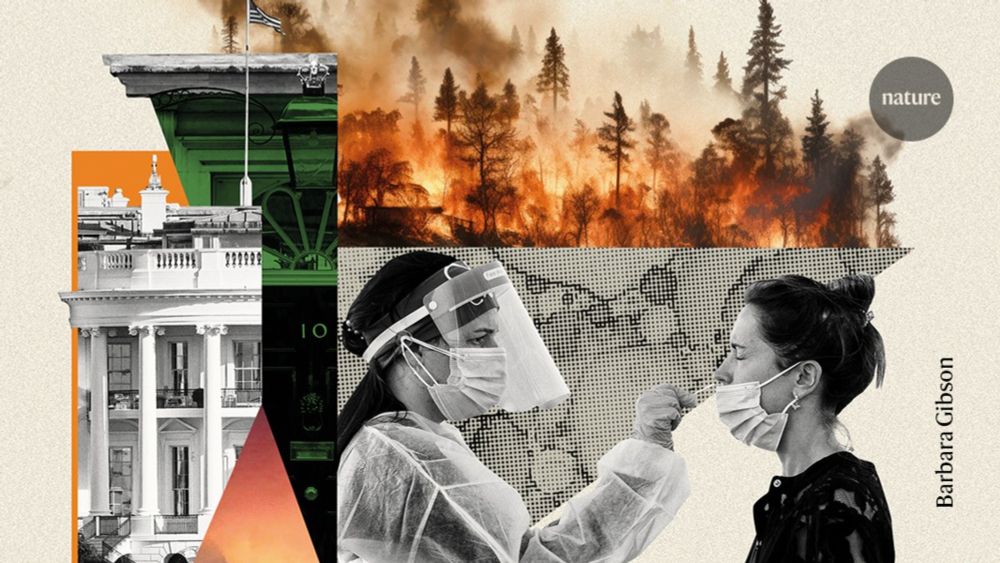
Science could solve some of the world’s biggest problems. Why aren’t governments using it?
A Nature global survey finds that most specialists are unhappy with systems to provide science advice to policymakers.
www.nature.com
December 4, 2024 at 10:27 AM
In a Nature survey, 80% of science-policy experts say their country’s science advice system is poor or patchy.
I've written about the state of global science advice & what should change.
www.nature.com/articles/d41...
Thnx to @ingsa.bsky.social @transformevidence.bsky.social @jperkel.bsky.social
I've written about the state of global science advice & what should change.
www.nature.com/articles/d41...
Thnx to @ingsa.bsky.social @transformevidence.bsky.social @jperkel.bsky.social
What skills do knowledge brokers need?
blogs.lse.ac.uk/impactofsoci...
blogs.lse.ac.uk/impactofsoci...

What skills do knowledge brokers need?
Reporting on a study of knowledge brokers’ views on the attributes required to be good at their job, Denis Karcher and Chris Cvitanovic present four attributes and styles of working that underpin g…
blogs.lse.ac.uk
December 7, 2024 at 4:24 PM
What skills do knowledge brokers need?
blogs.lse.ac.uk/impactofsoci...
blogs.lse.ac.uk/impactofsoci...
Reposted by John O’Connor
The value of a research function in a Knowledge Brokering Organisation: what we've learnt so far.
📝 Eleanor MacKillop, Hannah Durrant & James Downe share lessons from the Wales Centre for Public Policy research team.
Latest on our blog 👇🏼
transforming-evidence.org/blog/the-val...
📝 Eleanor MacKillop, Hannah Durrant & James Downe share lessons from the Wales Centre for Public Policy research team.
Latest on our blog 👇🏼
transforming-evidence.org/blog/the-val...
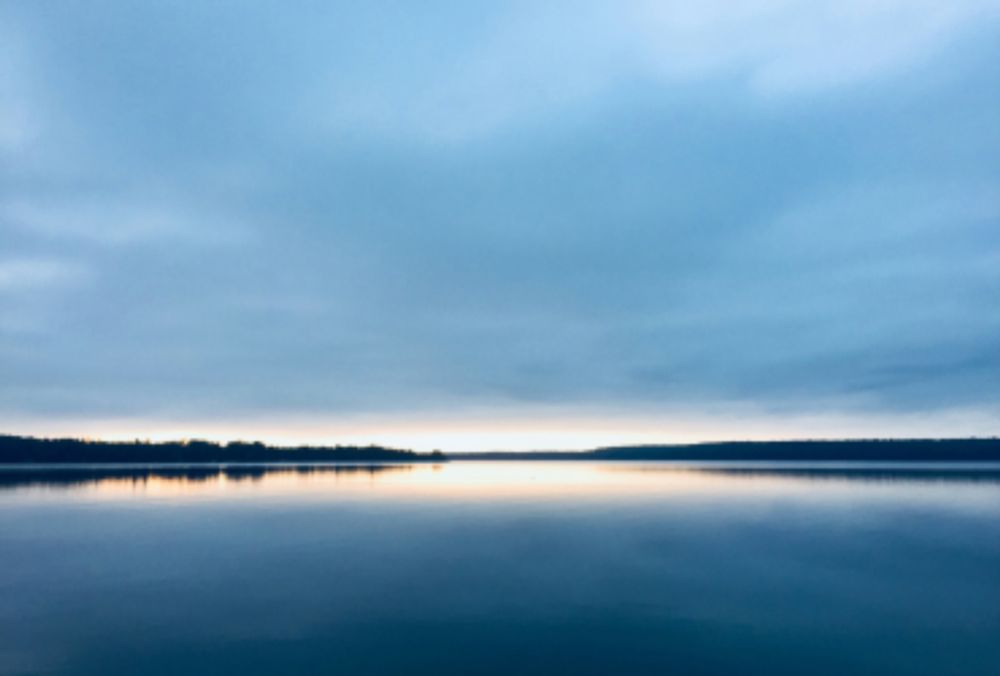
The value of a research function in a Knowledge Brokering Organisation
What we've learnt so far
transforming-evidence.org
December 4, 2024 at 11:11 AM
The value of a research function in a Knowledge Brokering Organisation: what we've learnt so far.
📝 Eleanor MacKillop, Hannah Durrant & James Downe share lessons from the Wales Centre for Public Policy research team.
Latest on our blog 👇🏼
transforming-evidence.org/blog/the-val...
📝 Eleanor MacKillop, Hannah Durrant & James Downe share lessons from the Wales Centre for Public Policy research team.
Latest on our blog 👇🏼
transforming-evidence.org/blog/the-val...
Reposted by John O’Connor
Very excited to be here, so thought we would share something that was popular in the other place (and is still, depressingly, true . . . but at least we've fixed some of the problems, notably '404 not found')

November 20, 2024 at 4:30 PM
Very excited to be here, so thought we would share something that was popular in the other place (and is still, depressingly, true . . . but at least we've fixed some of the problems, notably '404 not found')
“one of the most common criticisms levelled at research assessment is that it does not adhere to the same standards of rigour we apply to academic research”
blogs.lse.ac.uk/impactofsoci...
blogs.lse.ac.uk/impactofsoci...

Unanswered questions in research assessment 2 – Can we apply the scientific method to research assessment?
Noemie Aubert Bonn and Haley Hazlett discuss the importance of applying scholarly standards to research assessment reform efforts and the value of creating space for experimentation, transpare…
blogs.lse.ac.uk
December 5, 2024 at 6:18 AM
“one of the most common criticisms levelled at research assessment is that it does not adhere to the same standards of rigour we apply to academic research”
blogs.lse.ac.uk/impactofsoci...
blogs.lse.ac.uk/impactofsoci...
‘the core idea that a university has is to establish a boundary spanning entity that helps to translate academic research into policy impacts.’
wonkhe.com/blogs/how-to...
wonkhe.com/blogs/how-to...

How to set up an academic think tank
How and why should universities set up a think tank? That is the question that Jonathan Grant is often asked on his travels around the sector How and why should universities set up a think tank? That ...
wonkhe.com
December 1, 2024 at 12:13 PM
‘the core idea that a university has is to establish a boundary spanning entity that helps to translate academic research into policy impacts.’
wonkhe.com/blogs/how-to...
wonkhe.com/blogs/how-to...
‘Funders find it challenging to design funding programs with societal goals alongside academic and economic ones’
#science4policy
blogs.lse.ac.uk/impactofsoci...

Four challenges for funding research with societal goals
Drawing on a recent study of systemic challenges to delivering research funding for societal change and evidence from a recent meeting of research funders, Andreas Kjær Stage, Carter Walter Bloch, …
blogs.lse.ac.uk
December 1, 2024 at 6:31 AM
‘Funders find it challenging to design funding programs with societal goals alongside academic and economic ones’
#science4policy
blogs.lse.ac.uk/impactofsoci...

